Figs, whether fresh or dried, are a dietary powerhouse for their consumers. Dried fig contains many benefits and uses for human health. Vitamin C, vitamin K, potassium, phosphorus, magnesium, calcium, and fiber are all abundant in these naturally sweet fruits. Antioxidants such as quercetin, kaempferol, epicatechin gallate, and others may be found in abundance there as well. They are good for you and may even help you lose weight, despite the fact that they are heavy in sugar. These superfoods may be found in a wide range of shapes, sizes, colors, and types. The black mission fig, the Sierra fig, and the Kadota fig are three of the most well-known varieties. The reduced water content of dried figs means that they are more densely packed with calories, sugar, and minerals. Fresh figs have almost the same calorie and macronutrient breakdown as dried ones, with 111 calories, 1.2 grams of protein, 0.3 grams of fat, and 28.8 grams of carbohydrates, including 24.3 grams of sugars and 4.2 grams of fiber. They have fewer calories but a lower nutritional value than dried figs. Figs, in contrast to dates, have fewer calories and fewer carbohydrates. Dates include 415 calories and 110.2 grams of carbohydrates, including 93.1 grams of sugars per cup, much higher than dried figs. Delicious as they are to eat, these fruits also provide important nutritional benefits. Dried figs, which are loaded with vitamins and minerals, are useful for warding off malnutrition, bolstering bone health, and easing the process of dropping extra pounds. They are rich in antioxidants, which prevent premature aging and eliminate oxidative stress. Stop searching if you've been experiencing difficulty passing stool. The high fiber content of these fruits can help you maintain a regular bowel routine and ease any bloating or gas you may be experiencing.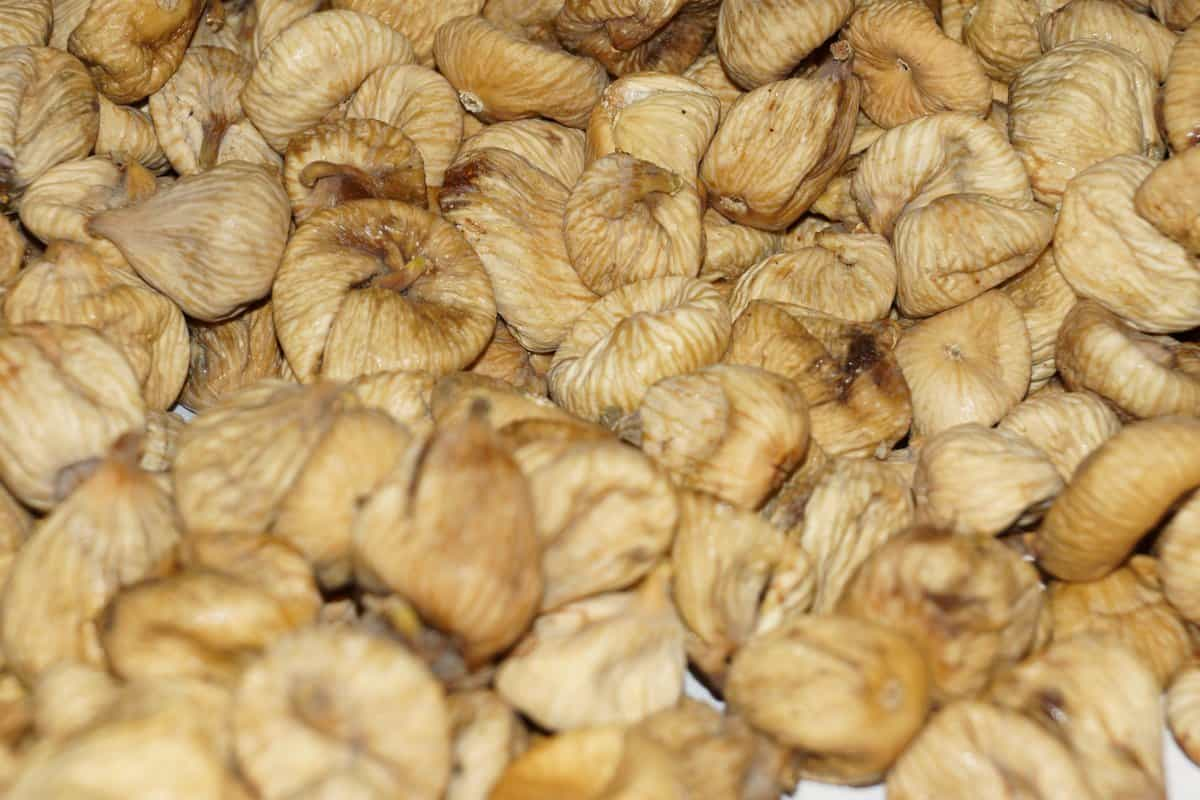 Additionally, your immune system will fortify. Figs contain plant-based chemicals that boost the immune response and affect particular genes involved in immune function, as reported in a 2015 research published in the journal Fish & Shellfish Immunology. Consume Figs to Improve Bone Health. A fourth of your daily calcium needs may be met by eating only one cup of dried figs. When included in a healthy diet, this mineral helps prevent bone loss and osteoporosis. Bone health is positively correlated with fig eating, according to a paper published in Sains Malaysiana in 2018. They found that the mineral content of this fruit was quite similar to that of human milk. The high quantities of calcium, magnesium, potassium, and phosphorus in figs are suggested by many studies as a possible osteoporosis prevention mechanism. These nutrients help bone development and maintenance. Bone loss and urinary calcium loss may be slowed with the use of calcium and potassium. Figs also help prevent cardiovascular disease, fight cancer, lower blood sugar, and protect the liver. Slimming down is easier with the help of dried figs. These fruits may facilitate clean eating and help you shed pounds when eaten in moderation. Dried figs' dietary fiber boosts fullness and decreases appetite, which contributes to weight loss. Harvard Health Publishing notes that high-fiber diets not only aid in weight loss but also provide potential defense against cardiovascular disease and type 2 diabetes. The Journal of Nutrition and Metabolism released research in 2017 that revealed reduced fiber consumption was associated with a higher BMI. According to some research, increasing your fiber intake might have positive effects on your health and weight. As an extra bonus, dried figs are delicious without the need for added sweeteners. For this reason, they're a better choice than things like cookies, milk chocolate, cake, and other processed meals. If you're attempting to slim down, add some figs to baked goods, waffles, pancakes, and smoothies instead of sugar. Eat these fruits after exercise to restore your glycogen reserves and assist your muscles to recover from training.
Additionally, your immune system will fortify. Figs contain plant-based chemicals that boost the immune response and affect particular genes involved in immune function, as reported in a 2015 research published in the journal Fish & Shellfish Immunology. Consume Figs to Improve Bone Health. A fourth of your daily calcium needs may be met by eating only one cup of dried figs. When included in a healthy diet, this mineral helps prevent bone loss and osteoporosis. Bone health is positively correlated with fig eating, according to a paper published in Sains Malaysiana in 2018. They found that the mineral content of this fruit was quite similar to that of human milk. The high quantities of calcium, magnesium, potassium, and phosphorus in figs are suggested by many studies as a possible osteoporosis prevention mechanism. These nutrients help bone development and maintenance. Bone loss and urinary calcium loss may be slowed with the use of calcium and potassium. Figs also help prevent cardiovascular disease, fight cancer, lower blood sugar, and protect the liver. Slimming down is easier with the help of dried figs. These fruits may facilitate clean eating and help you shed pounds when eaten in moderation. Dried figs' dietary fiber boosts fullness and decreases appetite, which contributes to weight loss. Harvard Health Publishing notes that high-fiber diets not only aid in weight loss but also provide potential defense against cardiovascular disease and type 2 diabetes. The Journal of Nutrition and Metabolism released research in 2017 that revealed reduced fiber consumption was associated with a higher BMI. According to some research, increasing your fiber intake might have positive effects on your health and weight. As an extra bonus, dried figs are delicious without the need for added sweeteners. For this reason, they're a better choice than things like cookies, milk chocolate, cake, and other processed meals. If you're attempting to slim down, add some figs to baked goods, waffles, pancakes, and smoothies instead of sugar. Eat these fruits after exercise to restore your glycogen reserves and assist your muscles to recover from training.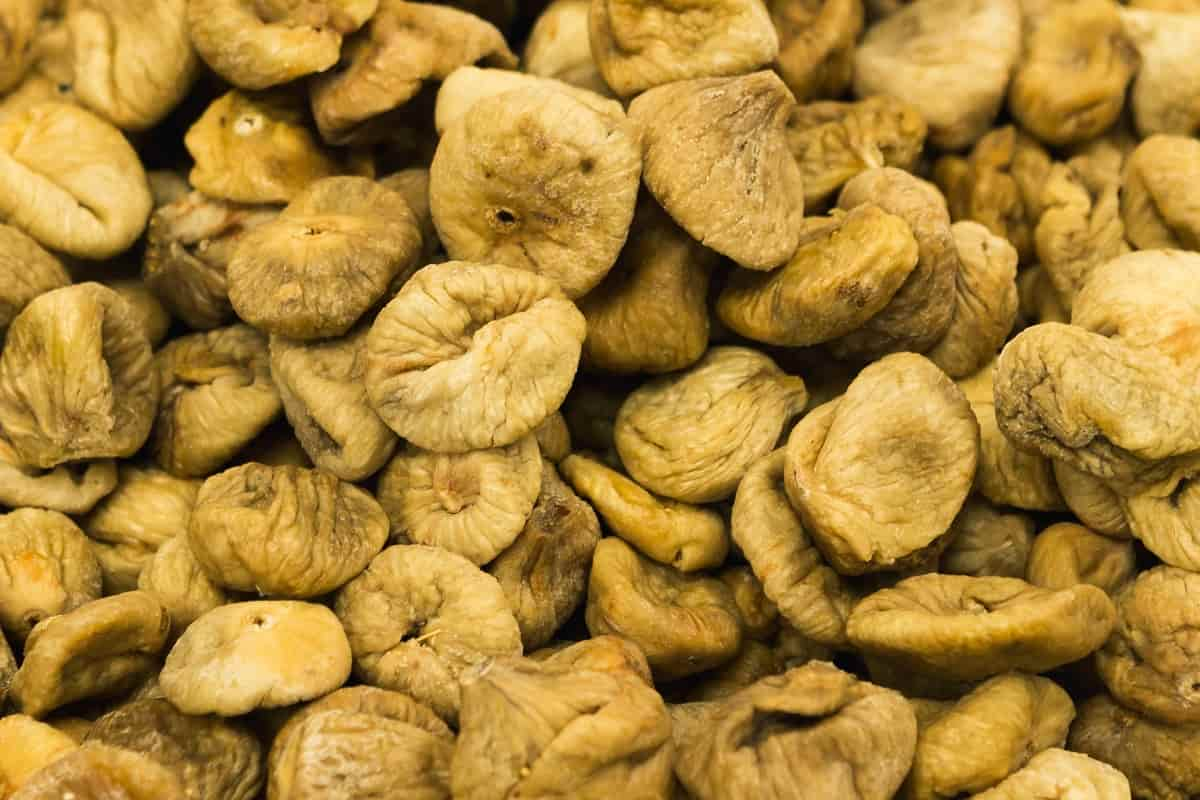 Better hair and skin health are possible. Beauty starts from the inside out. The health of your hair, skin, and nails is directly related to the foods you eat. Antioxidants and other micronutrients found in dried figs help keep your skin and hair strong and healthy. Journal of Pharmacognosy and Phytochemistry reports that these fruits have antioxidant and antibacterial effects. They include high concentrations of phenolic substances such as gallic acid, catechins, saponins, and other antioxidants that help prevent oxidative damage a leading cause of premature aging and chronic illnesses. These results suggest that consuming figs might reduce the effects of oxidative stress on the skin and hence delay the aging process. They have antibacterial characteristics, so they might assist you to avoid being infected with bacteria that cause skin rashes. Zinc and iron, two vital elements in figs, boost hair development and decrease hair loss. Figs' high amounts of antioxidants are responsible for most of their health advantages. An article published in Biomed Research International in 2014 suggests that the antioxidant properties of Omani figs may help with memory and prevent oxidative brain damage. The antioxidants in these fruits may prevent plaque development in Alzheimer's disease and protect against neuronal damage. The results of this research provide promising evidence that eating figs might enhance cognitive function and mitigate some of the behavioral abnormalities associated with memory loss. More study is required to determine the effect they have on mental health and the prevention of neurodegenerative diseases. Researchers ascribe these effects to the high quantities of flavonoids, quercetin, ferulic acid, anthocyanins, and other powerful antioxidants in figs. Because of their relatively high sugar content, dried figs may not appear like a good option for diabetics. Several Ficus species, including the common fig, may lower blood glucose levels and increase insulin responsiveness, according to a recent analysis published in the Journal of Ethnopharmacology in 2018. High levels of bioactive chemicals with anti-diabetic effects may be found in these fruits.
Better hair and skin health are possible. Beauty starts from the inside out. The health of your hair, skin, and nails is directly related to the foods you eat. Antioxidants and other micronutrients found in dried figs help keep your skin and hair strong and healthy. Journal of Pharmacognosy and Phytochemistry reports that these fruits have antioxidant and antibacterial effects. They include high concentrations of phenolic substances such as gallic acid, catechins, saponins, and other antioxidants that help prevent oxidative damage a leading cause of premature aging and chronic illnesses. These results suggest that consuming figs might reduce the effects of oxidative stress on the skin and hence delay the aging process. They have antibacterial characteristics, so they might assist you to avoid being infected with bacteria that cause skin rashes. Zinc and iron, two vital elements in figs, boost hair development and decrease hair loss. Figs' high amounts of antioxidants are responsible for most of their health advantages. An article published in Biomed Research International in 2014 suggests that the antioxidant properties of Omani figs may help with memory and prevent oxidative brain damage. The antioxidants in these fruits may prevent plaque development in Alzheimer's disease and protect against neuronal damage. The results of this research provide promising evidence that eating figs might enhance cognitive function and mitigate some of the behavioral abnormalities associated with memory loss. More study is required to determine the effect they have on mental health and the prevention of neurodegenerative diseases. Researchers ascribe these effects to the high quantities of flavonoids, quercetin, ferulic acid, anthocyanins, and other powerful antioxidants in figs. Because of their relatively high sugar content, dried figs may not appear like a good option for diabetics. Several Ficus species, including the common fig, may lower blood glucose levels and increase insulin responsiveness, according to a recent analysis published in the Journal of Ethnopharmacology in 2018. High levels of bioactive chemicals with anti-diabetic effects may be found in these fruits.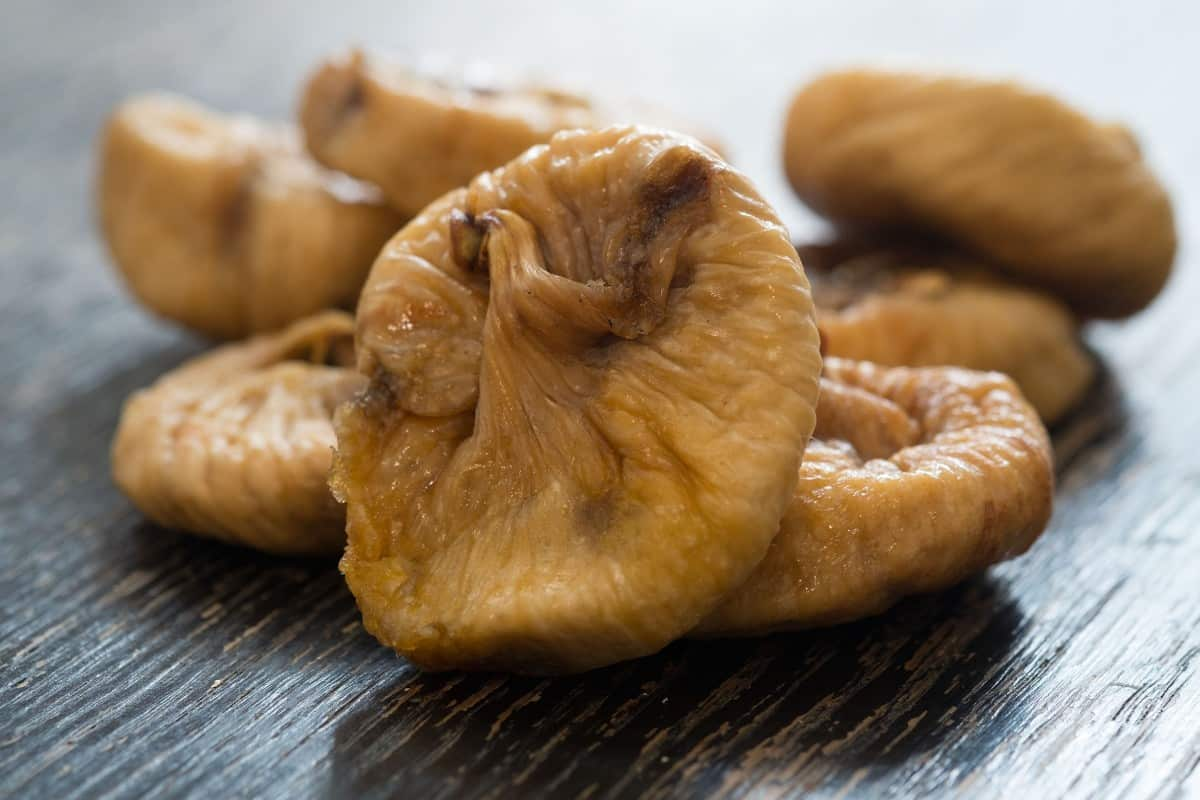 Mistletoe fig (Ficus deltoidea), as reported in BMC Complementary and Alternative Medicine, has the potential to reduce drug-induced hyperglycemia and improve diabetes-related complications. The plant's leaves have healing properties. Keep in mind that figs are a rich source of fiber. This vitamin helps with both weight management and keeping blood sugar levels stable. Possible fiber advantages were examined in a 2018 research published in Science. According to the research, high-fiber diets foster the development of bacteria in the intestines that are key in the production of short-chain fatty acids (SCFAs). Both inflammation and hunger may be controlled by consuming these lipids. A diet rich in fiber can balance the gut flora and increase SCFAs, making diabetes management easier.
Mistletoe fig (Ficus deltoidea), as reported in BMC Complementary and Alternative Medicine, has the potential to reduce drug-induced hyperglycemia and improve diabetes-related complications. The plant's leaves have healing properties. Keep in mind that figs are a rich source of fiber. This vitamin helps with both weight management and keeping blood sugar levels stable. Possible fiber advantages were examined in a 2018 research published in Science. According to the research, high-fiber diets foster the development of bacteria in the intestines that are key in the production of short-chain fatty acids (SCFAs). Both inflammation and hunger may be controlled by consuming these lipids. A diet rich in fiber can balance the gut flora and increase SCFAs, making diabetes management easier.
- Dried fig uses and benefits
Dried Fig has a long history of uses as a folk remedy for a variety of illnesses and contains many benefits, including those affecting the gastrointestinal tract, the reproductive system, the respiratory system, and the endocrine system. This article examines the advantages of eating figs as well as the potential drawbacks of doing so. Additionally, the nutritional value of both fresh and dried figs is discussed in this section. Have you ever eaten figs on toast, fig cheese puffs, roasted figs with walnuts, or custard made with apples and figs? If not, it's time to spice up your diet with some new foods and flavors. These fruits have the ability to elevate any dish to the level of a gourmet delight, and they may bring your dishes to a whole new level. There are literally hundreds of recipes that call for the use of dried fruits, ranging from baked goods like cakes and pies to breakfast cereals and puddings. But do they truly have such a low risk of disease? It is determined by the person you ask. Dried fruits are a sugary time bomb for anyone who is following a low-carb diet. On the other hand, nutritionists place an emphasis on the health advantages of dry fruits and the function that they play in maintaining a balanced diet.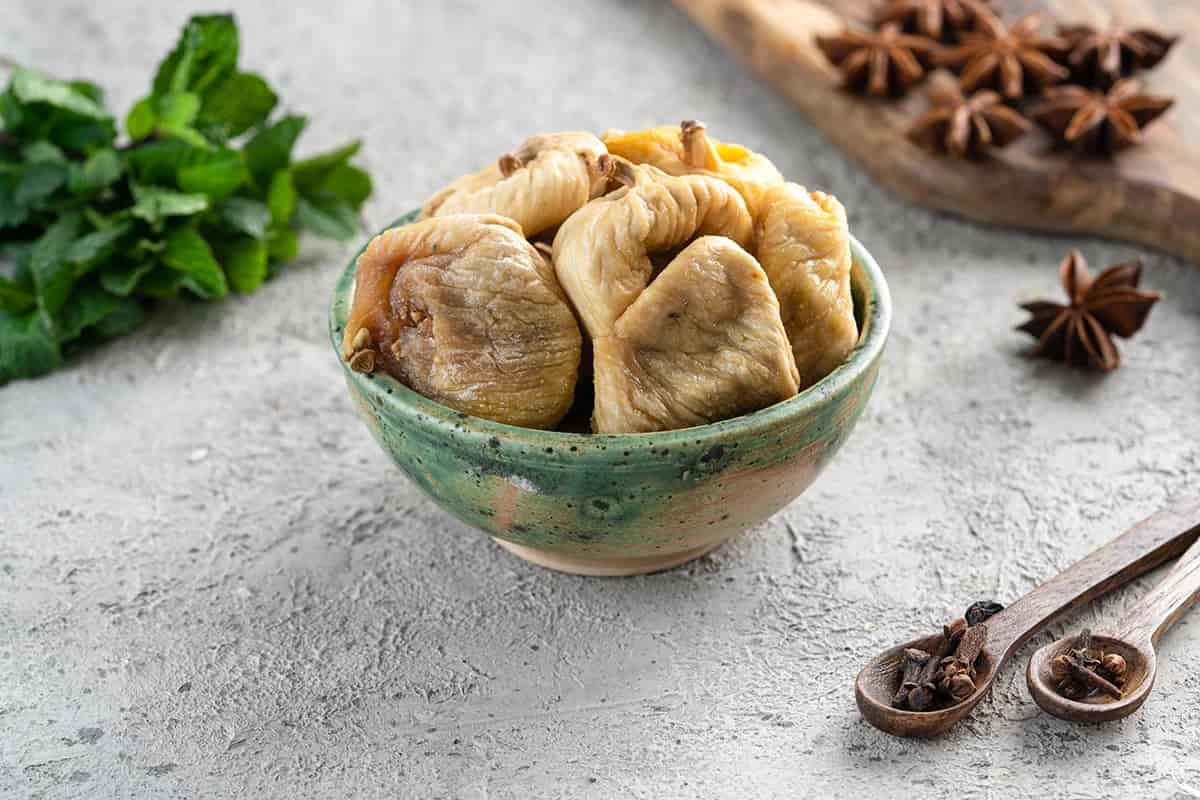 Dried fruits such as raisins, dried figs, banana chips, coconut chips, prunes, and others are being marketed as a natural and healthier alternative to sugary treats. These savory treats pack a substantial nutritional punch due to their high levels of simple and complex carbohydrates, fiber, vitamins, and antioxidants. The drawback is that they contain a lot of sugar and are thus rich in calories. Because dried fruits are more compact than fresh fruits, it is simple to go overboard and consume an excessive amount of them in a single sitting. Additionally, in order to enhance the taste of dried fruit, some producers add sugar; for this reason, it is imperative that you carefully read all product labels. Aside from that, these meals are loaded with a variety of nutrients, most notably fiber and vitamins. The most important thing is to control your portion sizes. These foods are high in energy density, yet they also have a high nutritional value. Dried plums increase bone production and may enhance bone density, according to a study that was published in the journal Nutrients in 2017. Because they are high in fiber and sorbitol, dried plums also function as a natural laxative and may help avoid constipation. Researchers also highlight the fact that dried plums are a fantastic source of vitamin K and potassium, in addition to phenolic acids, which are beneficial to one's general health. Switch to dry coconut chips as a go-to snack if you're aiming to reduce the number of carbohydrates you eat. One cup has 675 calories, 7.1 grams of protein, and 25 grams of carbohydrates, of which there are 17.9 grams of fiber and 7.1 grams of sugar; when the fiber is subtracted from the total, the remaining amount is 7.1 grams of net carbohydrates. These mouthwatering sweets also provide 18 percent of the daily required intake of iron and 4 percent of the daily recommended allowance of vitamin C. Dried fruits, despite the considerable amount of sugar that they contain, may help prevent diabetes and ease the symptoms of diabetes. An unexpected analysis of the advantages of nuts and dried fruits was published in the year 2017 in the academic journal Nutrients. Consumption of dried fruit has been associated by researchers with increased nutritional intake, decreased body weight, and a reduced chance of developing diabetes. Grapes and other dried fruits include a variety of antioxidants, some of which have been shown to assist enhance insulin responsiveness and protect the pancreas from oxidative stress and inflammation.
Dried fruits such as raisins, dried figs, banana chips, coconut chips, prunes, and others are being marketed as a natural and healthier alternative to sugary treats. These savory treats pack a substantial nutritional punch due to their high levels of simple and complex carbohydrates, fiber, vitamins, and antioxidants. The drawback is that they contain a lot of sugar and are thus rich in calories. Because dried fruits are more compact than fresh fruits, it is simple to go overboard and consume an excessive amount of them in a single sitting. Additionally, in order to enhance the taste of dried fruit, some producers add sugar; for this reason, it is imperative that you carefully read all product labels. Aside from that, these meals are loaded with a variety of nutrients, most notably fiber and vitamins. The most important thing is to control your portion sizes. These foods are high in energy density, yet they also have a high nutritional value. Dried plums increase bone production and may enhance bone density, according to a study that was published in the journal Nutrients in 2017. Because they are high in fiber and sorbitol, dried plums also function as a natural laxative and may help avoid constipation. Researchers also highlight the fact that dried plums are a fantastic source of vitamin K and potassium, in addition to phenolic acids, which are beneficial to one's general health. Switch to dry coconut chips as a go-to snack if you're aiming to reduce the number of carbohydrates you eat. One cup has 675 calories, 7.1 grams of protein, and 25 grams of carbohydrates, of which there are 17.9 grams of fiber and 7.1 grams of sugar; when the fiber is subtracted from the total, the remaining amount is 7.1 grams of net carbohydrates. These mouthwatering sweets also provide 18 percent of the daily required intake of iron and 4 percent of the daily recommended allowance of vitamin C. Dried fruits, despite the considerable amount of sugar that they contain, may help prevent diabetes and ease the symptoms of diabetes. An unexpected analysis of the advantages of nuts and dried fruits was published in the year 2017 in the academic journal Nutrients. Consumption of dried fruit has been associated by researchers with increased nutritional intake, decreased body weight, and a reduced chance of developing diabetes. Grapes and other dried fruits include a variety of antioxidants, some of which have been shown to assist enhance insulin responsiveness and protect the pancreas from oxidative stress and inflammation.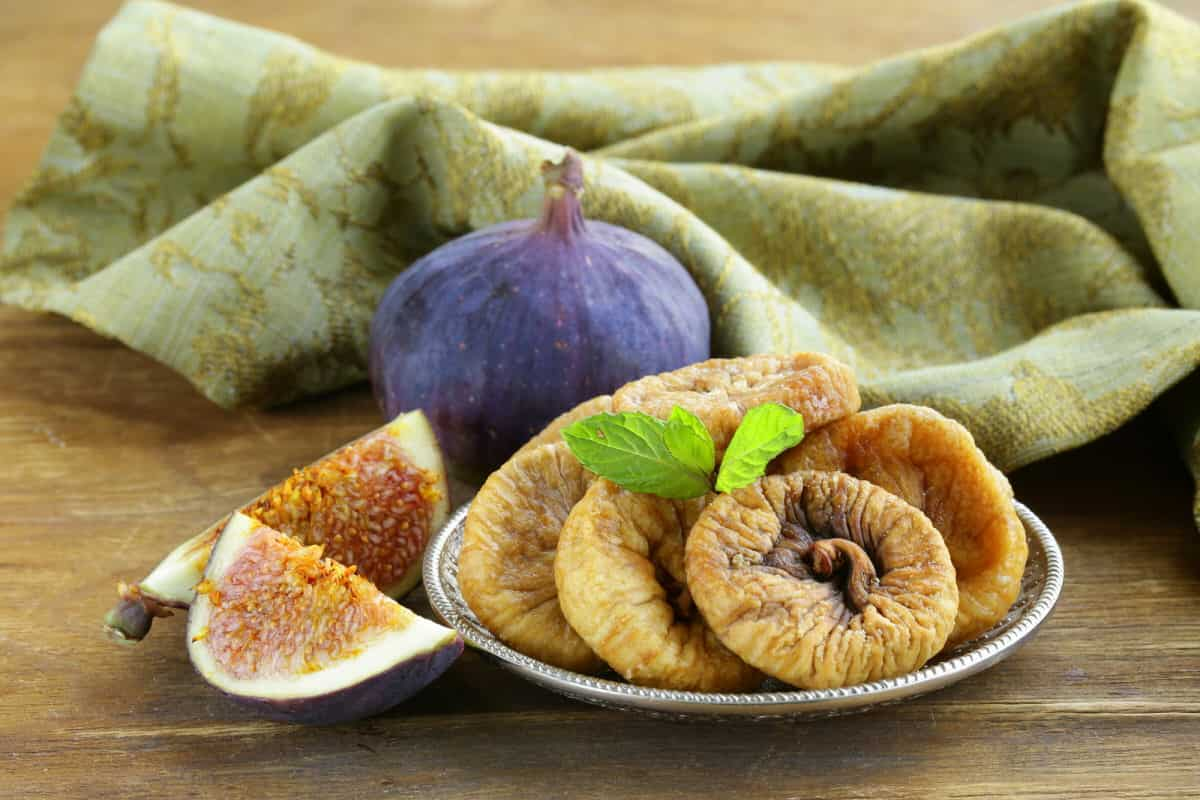 According to the findings of one of the research that was analyzed for this review, grape skin extract may help maintain pancreatic function and minimize variations in blood sugar levels. According to the findings of another research, date fruit extract may help minimize the neurophysiological and behavioral abnormalities associated with diabetes. Both nuts and dried fruits are high in quercetin and other polyphenols that have health benefits including anti-inflammatory, anti-diabetes, and anti-obesity properties, according to research conducted by scientists. If you feel like your immune system could use a boost, including goji berries in your diet might help. The vitamin A, vitamin C, and iron content of these superfoods are over the roof. In addition to this, they have fewer calories and carbohydrates than the majority of other dried fruits. Consuming dry fruits is associated with several other health benefits, including improved digestion, a more youthful appearance of the skin, and a more positive attitude. According to research that was conducted in 2016 and published in the Turkish Journal of Biology, these foods may aid with anxiety and sadness, which is something that you may not be aware of. The consumption of goji berries resulted in a significant decrease in both the degree of anxiety and the depressed behaviors shown by the rats. Both their academic performance and their ability to sleep better. Even though rats were used in the study, the results have opened the door to new avenues of investigation. It has been shown that particular polysaccharides in goji berries may lower anxiety by boosting serotonin or melatonin levels in the brain. Scientists credit these effects to the presence of these polysaccharides in goji berries. These fruits have a high concentration of beta-carotene, which is a powerful antioxidant that strengthens one's memory and reduces feelings of worry.
According to the findings of one of the research that was analyzed for this review, grape skin extract may help maintain pancreatic function and minimize variations in blood sugar levels. According to the findings of another research, date fruit extract may help minimize the neurophysiological and behavioral abnormalities associated with diabetes. Both nuts and dried fruits are high in quercetin and other polyphenols that have health benefits including anti-inflammatory, anti-diabetes, and anti-obesity properties, according to research conducted by scientists. If you feel like your immune system could use a boost, including goji berries in your diet might help. The vitamin A, vitamin C, and iron content of these superfoods are over the roof. In addition to this, they have fewer calories and carbohydrates than the majority of other dried fruits. Consuming dry fruits is associated with several other health benefits, including improved digestion, a more youthful appearance of the skin, and a more positive attitude. According to research that was conducted in 2016 and published in the Turkish Journal of Biology, these foods may aid with anxiety and sadness, which is something that you may not be aware of. The consumption of goji berries resulted in a significant decrease in both the degree of anxiety and the depressed behaviors shown by the rats. Both their academic performance and their ability to sleep better. Even though rats were used in the study, the results have opened the door to new avenues of investigation. It has been shown that particular polysaccharides in goji berries may lower anxiety by boosting serotonin or melatonin levels in the brain. Scientists credit these effects to the presence of these polysaccharides in goji berries. These fruits have a high concentration of beta-carotene, which is a powerful antioxidant that strengthens one's memory and reduces feelings of worry.
